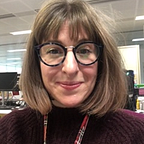Open Fund FAQs for writers: Describing creative development
We receive lots of questions from writers around practice development within projects for which they wish to apply to the Open Fund and have pulled together the following advice.
I am established in one market category (e.g. fiction) but wish to extend my range of practice to another (e.g. memoir). Can I apply?
Applications of this type are eligible for support. In considering how best to address the criteria, you may wish to think about the following:
- How can you evidence capacity to work in the new area with similar strength? In this context some transitions may be more challenging than others, particularly when these involve different audiences, for example when a writer for children seeks to write for an adult readership or vice versa. Do think carefully about how you will evidence your own capacity and the likelihood of the work reaching readers.
- How will this development help you to sustain your practice, and how will you evidence this? Is this a move towards ongoing practice in both areas, or a one-off project? If the former, what relationships and networks have you established to help make the transition? If the latter, how does this fit the criteria?
The form asks how writing the book will support my creative development… isn’t that obvious?
There are some ways in which literature differs from other forms of creative practice supported by Creative Scotland. In some other contexts — theatre, for example — the distinction between ‘development’ and ‘production’ is relatively clear. This is not the case for writing. It is both a means and an end — a fundamentally developmental process during which writers set and answer a range of challenges in terms of what their writing can achieve, resulting in the finished work.
Literature is also characterised by individual practice, whereas many other artforms are collaborative. The process is perceived by many writers as ‘private’ and even as mysterious. Many writers profess to have no clear understanding of how they go about the deeper levels of their creative work, and many do not possess the vocabulary to discuss this process. In some other areas of practice artists receive formal training, including the opportunity to learn to discuss practice theoretically.
We plan to write more about expressing practice in literature in a blog post shortly, with contributions from a number of authors. If you have any thoughts on this, we’d love to hear them.
Do these notes answer your queries about development and support to switch market categories? If you have other queries, please do let us know in the comments or contact us direct.
